It’s a chilly Thursday evening when Samantha and her 7-year-old son, Taye, are climbing the stairs in a multi-story apartment building in San Francisco’s Richmond District. They’re here to deliver a bounty of fresh food to the Pham family – part of the Food Bank’s Home-Delivered Groceries program. And yet, the food is just part of the equation. Their knock on the front door is followed by a warm greeting, smiles, and hugs all around.
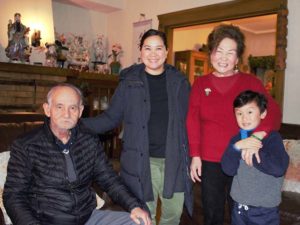 Longtime San Francisco residents, Mr. and Mrs. Pham have come to think of Samantha and Taye like family. The Phams grew up in China and Vietnam and moved to the United States after the Vietnam War. The couple settled in San Francisco, and Mrs. Pham says she has always enjoyed how welcoming and accessible the city has been for them.
Longtime San Francisco residents, Mr. and Mrs. Pham have come to think of Samantha and Taye like family. The Phams grew up in China and Vietnam and moved to the United States after the Vietnam War. The couple settled in San Francisco, and Mrs. Pham says she has always enjoyed how welcoming and accessible the city has been for them.
Long retired, Mr. Pham has limited mobility and rarely leaves their second-floor apartment. Mrs. Pham also has trouble moving around, after suffering a debilitating back injury during the war. Despite these hardships, the Phams stay positive, and appreciate the friendly conversations and nutritious food that Samantha and Taye bring to their doorstep every week.
“For me, it’s very hard to get outside and go to the store, so we are very thankful that this food is brought to us. And, we always look forward to seeing Taye and Samantha every week,” said Mrs. Pham, beaming at Taye, who during this evening’s visit had joined Mr. Pham in his favorite chair.
Major Milestone for Home-Delivered Groceries Program
In December, the Food Bank’s Home-Delivered Groceries Program made its 250,000th delivery. To mark this milestone, San Francisco Supervisor Sandra Fewer joined us and our partners from Richmond Neighborhood Center and Richmond Senior Center to pack groceries for the Pham family and many other HDG recipients.
“Food security is a critical part of what makes and sustains a healthy neighborhood,” says Supervisor Fewer. “This dynamic Home-Delivered Groceries program allows seniors, the fastest growing population in the Richmond District, to age-in-place with community support.”
Founded in 2011, the Home-Delivered Groceries (HDG) Program serves 1,998 homebound seniors and 467 adults with disabilities in San Francisco every week. The program aims to provide nutritious food to vulnerable neighbors, as well as reduce loneliness and foster connections among community members.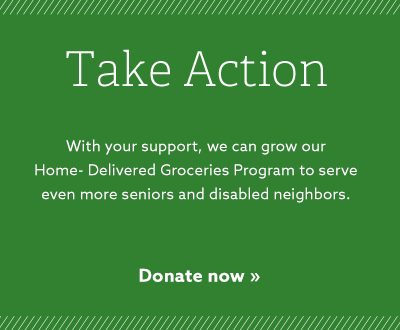
“For thousands of homebound residents in San Francisco, a weekly knock on the door brings not only a delivery of fresh groceries but a friendly visit and some human contact with people who don’t get outdoors very much,” says Jillian Tse, Program Coordinator for the Food Bank.
The Power of Partnerships
The HDG program is funded by San Francisco’s Department of Aging and Adult Services (DAAS). Fourteen faith-based and community-based organizations coordinate volunteers and staff to make weekly deliveries. The Food Bank provides nearly 25 pounds of food (on average) for every recipient weekly, including chicken, pasta or rice, and fresh, seasonal produce. The food is tailored to the nutritional needs of seniors and people who are less active because of mobility challenges.
This program is needed now, more than ever, as the population of seniors in San Francisco continues to grow. In 2016, older adults comprised 20% of that population but are projected to rise to 26% by 2030.


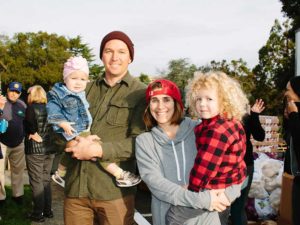
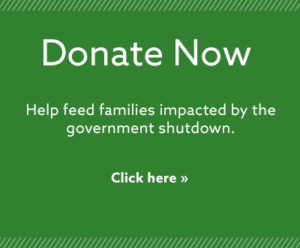
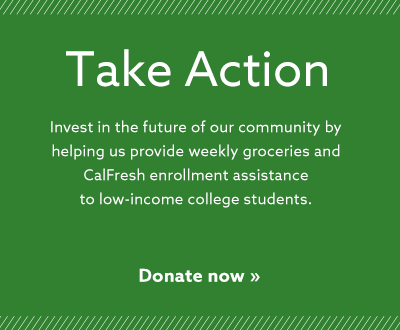
Share